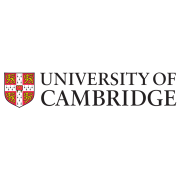Astrazeneca Funded Non Clinical Phd Studentship in - Cambridge, United Kingdom - University of Cambridge
Description
Applications are invited for 4-year
PhD studentship based in the
Department of Oncology, University of Cambridge and the new AstraZeneca Discovery Centre at Cambridge.
The student will be working on a collaborative project jointly supervised by Dr Harveer Dev, Dr Simon Pacey (University Department of Oncology) and Dr Josep Forment (Oncology R&D, AstraZeneca) and will have the opportunity to work across the two sites.
The project, entitled DNA damage and androgen pathway inhibition in prostate cancer will explore the interplay between these two pathways, placing you at the intersect of cutting edge biological, translational and clinical research.
Prostate cancer is a leading cause of cancer death in men in the UK. Precision medicine offers an opportunity to broaden the therapeutic landscape.This is exemplified by Poly ADP-ribose polymerase inhibitors (PARPi), which provide clinical benefit across various cancers with homologous recombination repair deficiency (HRD).
Unexpectedly, recent phase 3 trials in prostate cancer (PROPEL and TALAPRO-2), demonstrated a survival benefit regardless of HRD status, when PARPi were combined with standard of care androgen pathway inhibition (API).
The principle that DNA damaging agents may synergistically interact with androgen receptor inhibition is well supported by the survival benefit gained by combining radiotherapy with API.
Consequently, this supports extending the use of DNA damaging agents like PARPi beyond the 25% of HRD biomarker-positive patients that are currently eligible.
This project aims to identify novel genetic determinants that mediate the synergistic response to DNA damaging agents and API combination in prostate cancer, defining their mechanism of action and validating the clinical relevance of these pathways in non-HRD patients.
Techniques relevant to the project will include, but not limited to: cell culture, including primary cell culture, gene editing using CRISPR-Cas9, cell survival assays, immunoblotting, immunofluorescence, flow cytometry, bulk and single-cell RNA sequencing, ChIP and ATAC sequencing.
Funding
Full funding covering Maintenance fees at £21,500 per annum and the University Composition Fee is provided for the studentship, with effect from 1 October 2024.
Interview date:
week commencing 17 October 2023
The University has a responsibility to ensure that all employees are eligible to live and work in the UK.
More jobs from University of Cambridge
-

Occupational Health Technician
Cambridge, United Kingdom - 1 week ago
-

Communications Coordinator
Cambridge, United Kingdom - 1 week ago
-

Front of House Manager
Cambridge, United Kingdom - 3 weeks ago
-

Alumni Engagement Associate
Cambridge, United Kingdom - 2 weeks ago
-

Contracts Administrator
Cambridge, United Kingdom - 2 weeks ago
-

Alumni Engagement Digital Communications Associate
Cambridge, United Kingdom - 1 week ago
